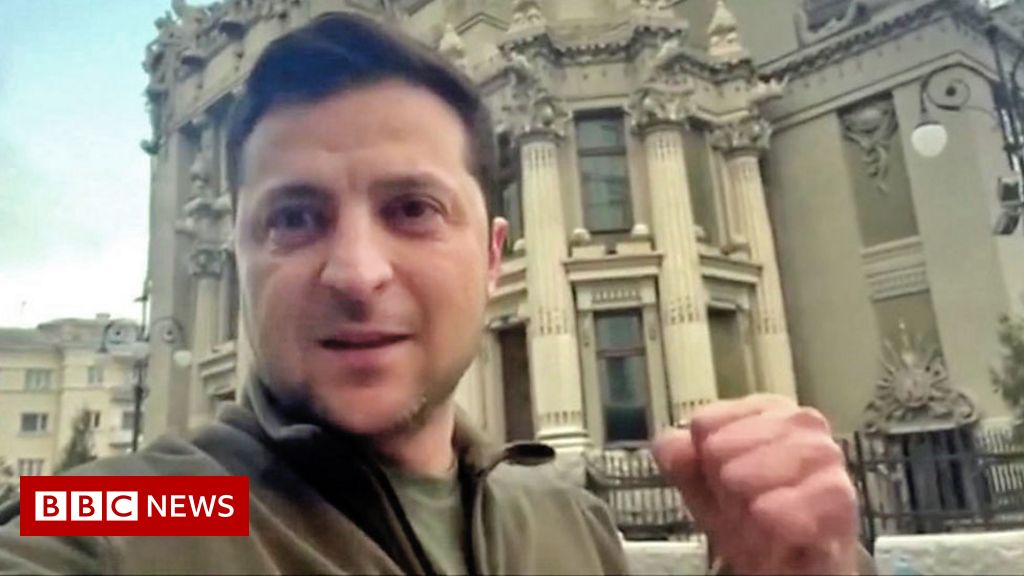
By Alliance President Terry Gips
Authoritarian regimes forbidding freedom of speech and non-violent dissent, initiating violence, perpetuating lies and waging war are a threat to democracy and sustainability. While Ukraine faces a dire situation with Russia’s invasion, it’s inspiring to see how Ukrainians are rising up, setting aside political differences and uniting to risk their lives for freedom and democracy. Maybe we can learn from them. Fortunately, much of the rest of the world, China excluded, is joining Ukrainians in support.
Thanks to POLITICO’s Morning Tech Newsletter (morningtech@email.politico.com) from February 28 for showing how US tech companies are taking big risks in standing up to Putin and how Ukraine and its brave and heroic President Volodymyr Zelensky are battling back and winning the social media war:
TECH INDUSTRY FACES OFF WITH KREMLIN: Major U.S. tech companies operating in Russia are in an increasingly untenable position — pulled in one direction by Western officials horrified by Russian President Vladimir Putin’s invasion of Ukraine, and in another by the Kremlin’s insistence that the companies clamp down on content that doesn’t conform with its domestic disinformation campaign.
But momentum is not on Moscow’s side — over the weekend, Facebook and YouTube largely defied the Kremlin’s demands and moved to impose restrictions of their own on Russian government accounts. The escalating standoff bodes poorly for the platforms’ future in Russia and may accelerate the balkanization of the world’s information and communications technology ecosystem.
Hit where it hurts? Following pressure from Sen. Mark Warner (D-Va.) and other policymakers, several platforms moved to demonetize the Kremlin’s online presence. On Friday Nathaniel Gleicher, Meta’s head of security policy, announced the company would prohibit Russian state media from running ads or making money on Facebook. On Saturday, YouTube followed suit, with a company Twitter account claiming it was “pausing” the ability of some Russian accounts, including RT, to make money through advertisements on the video-sharing site. (Advertisements still remained on some RT posts over the weekend, and YouTube said it will take more time to remove them all).
Late on Sunday, Facebook parent company Meta announced it had removed and blocked a network of 48 inauthentic accounts, pages and groups targeting Ukrainians with disinformation on Facebook and Instagram (Maggie has more for Pros).
Google pulls plug on RT — At the request of the Ukrainian government, on Saturday, Google-owned YouTube restricted access to RT and a number of other Russian state-run media channels in Ukraine. YouTube spokesperson Farshad Shadloo said Saturday the platform would “significantly limit recommendations to these channels” in other countries. Google separately announced it would ban app downloadsof RT inside Ukraine.
Not just social media — The tech industry’s conflict with the Russian government is fast expanding beyond social media. On Friday Mykhailo Fedorov, Ukraine’s top digital overseer, called on Apple to stop selling consumer electronics and other products in Russia and to shut down its app store inside the country (Apple did not respond to a request for comment). And on Saturday, SpaceX head Elon Musk said he’d deployed satellite broadband to Ukraine through SpaceX’s Starlink program to replace internet access disrupted by the invasion. “More terminals in route,” Musk promised Fedorov in a tweet.
UKRAINE TAKES ON RUSSIA IN ONLINE PROPAGANDA WAR: The Kremlin’s online propaganda machine — made notorious by its 2016 deployment against Hillary Clinton’s presidential campaign in favor of then-presidential candidate Donald Trump — is arguably struggling to make as much of an impact as many had expected it might across a wide swath of social media outlets. Meanwhile, pro-Ukrainian posts — while often impossible to verify — have swept across major tech platforms and captured imaginations across the democratic world. Here are a few examples:
‘Russian warship, go f*** yourself:’ Those words — supposedly the last transmitted by 13 Ukrainian defenders of Zmiinyi, an island in the Black Sea, before a Russian armada bombarded the outpost into submission on the invasion’s first day — swept across the internet over the weekend. Videos of the exchange proliferated across Twitter and TikTok and racked up millions of views across several YouTube channels. Ukrainian officials initially suggested all 13 soldiers had given their lives in the island’s defense, but that remains unconfirmed. Kremlin-backed news outlets like RT say that the troops surrendered, and the Guardian reports that the Ukrainian border patrol believes all 13 survived.
Zelenskyy’s social media savvy — Ukrainian President Volodymyr Zelensky — formerly a popular comedian and entertainer — sent several videos and photos over social media this weekend dispelling rumors that he had fled the Ukrainian capital of Kyiv. One such video, posted by Zelenskyy in the midst of Russian bombardments on Friday night, was set to a hip-hop soundtrack by a Twitter user, garnering more than 30,000 retweets and 180,000 likes. Zelenskyy’s Twitter account has been extremely active, with the Ukrainian leader needling the Russian government, urging peace with the Russian people and (often successfully) pressing democratic leaders for more support. Putin, by way of contrast, has been largely absent on social media.
The Ghost of Kyiv — Multiple social media platforms have been inundated since the start of the invasion with rumors of the “Ghost of Kyiv,” an unidentified Ukrainian fighter pilot allegedly responsible for downing at least five Russian aircraft. It’s unclear whether such a pilot actually exists, and the Ghost of Kyiv’s exploits seem to change with each post. But myth or no, the story has proliferated across TikTok, as well as Instagram and Twitter (even U.S. lawmakers are getting in on the action).
Consume with caution — None of this should be taken to suggest Ukraine has the upper hand militarily, or that any of the above examples remotely reflect reality on the ground. But it seems that Russia is not in any way dominating global social media, and may well be outmatched by Ukrainian efforts.
